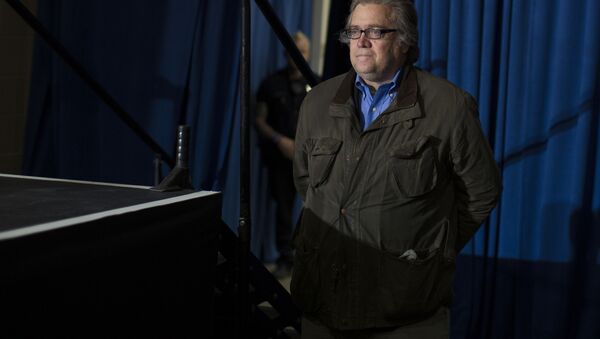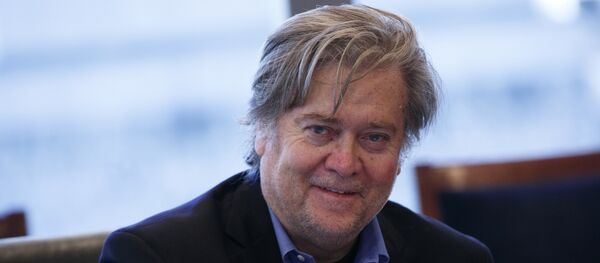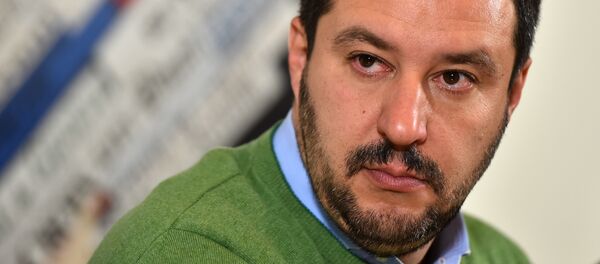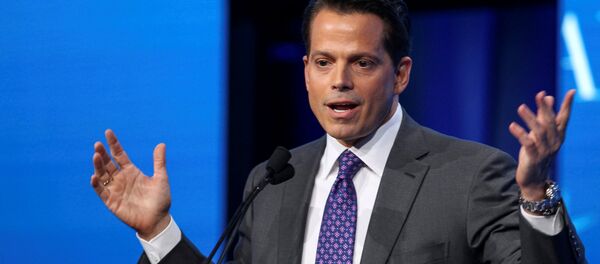Former White House chief strategist Steve Bannon has criticized the EU system in his interview to Reflex, a Czech media outlet, outlining his own vision of Europe's future. According to Bannon, by 2030 Europe will look like a community of independent and sovereign nation-states that cooperate free from Brussels' dictate.
Speaking to Sputnik Czech Republic, Premysl Votava, deputy chairman of the Czech National Social Party, warned against reconstructing the European bloc in the image and likeness of the US.
"Bannon is discontent with the current state of affairs in the EU," Votava said. "His talks with representatives of Euroskeptic parties have been prompted by the desire for a fundamental EU reform in a format that the United States understands. To this end, Bannon has visited Europe several times this year. In September, he met with President Milos Zeman in the Czech Republic."
"The last example is the arrogance and unfair threats voiced by the European Parliament against Hungary," he pointed out, adding that the Chamber of Deputies of the Czech Parliament condemned this process in the EU and supported Hungary.
Commenting on Bannon's premise that the EU should operate as a union of independent states, the Czech politician exposed flaws in the strategist's vision.
"Bannon is obviously ignorant of historic realities Europe has been developing in for thousands of years," he opined. "An example is the linguistic, cultural or social diversity of European countries. The union of independent states founded on the model of the US, proposed by Bannon, is an illusion of democracy."
According to the politician, the proposed structure of the EU would not correspond to the national interests of the Czech Republic.
"It would be even worse than today's European Union," Votava opined. "At the same time, we must remember that the Czech Republic's sovereignty had been limited for more than 100 years. Even 'independent' Czechoslovakia during the time of the First Republic was built on the French model. France and the United Kingdom also made decisions for Czechoslovakia in 1938. The protectorate was only a continuation of Munich, and also the post-war development in Czechoslovakia was only a continuation of this limited sovereignty."
"Even the current limited sovereignty is the ideological tool of the Brussels bureaucracy," he highlighted. "The EU Parliament is the sole executor of this policy, in which the 'senior citizens' of the European Union, mainly Germany and France, play an important role."
Speaking to Reflex, Bannon expressed his skepticism regarding further integration within the European Union and suggested that the Visegrad Group, a political alliance of four Central European states (the Czech Republic, Hungary, Poland and Slovakia) is one of the most important geopolitical blocs in the modern world.
"This is definitely a flattery, but you can agree with it," Votava said. "The Visegrad Four states are an important force and a major counterweight to 'old' EU member states. Currently, the main victims of attacks from Brussels are Hungary, less often Poland."
According to Votava, it is the time for the Visegrad Four to demonstrate its unity, as it did during the refugee crisis in Europe. He stressed that the migration issue had become a litmus test to Europe, exposing, for instance, naiveté of Brussels, Germany or France and Hungary's very prudent approach.
The views and opinions expressed by the speaker do not necessarily reflect those of Sputnik.






